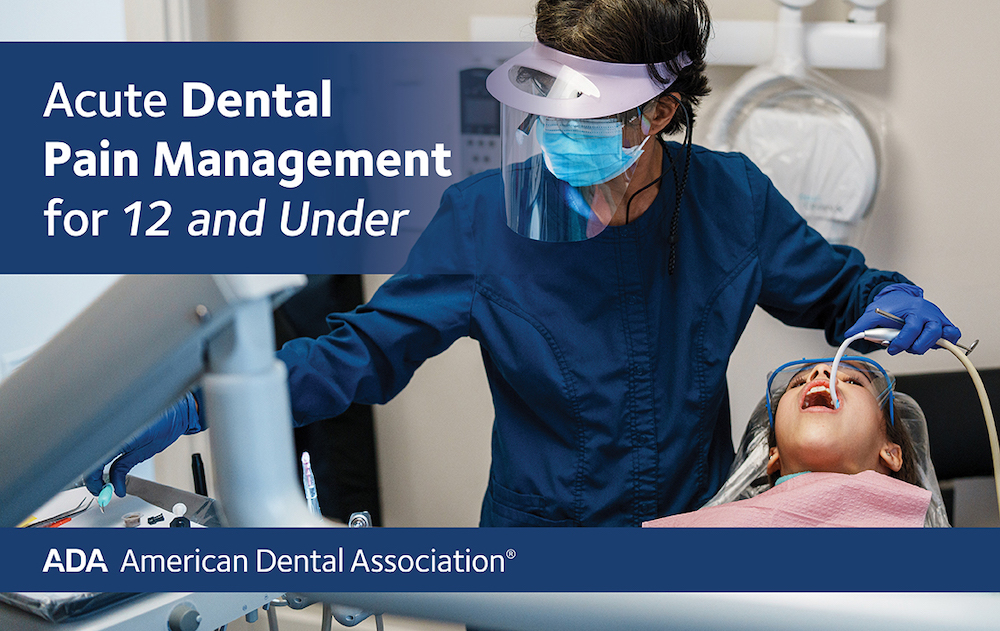New ADA guideline recommends acetaminophen, NSAIDs to manage pain in pediatric patients
Association policy supports opioid prescription limits, mandatory CE for dentists

A new clinical practice guideline from the American Dental Association recommends acetaminophen or nonsteroidal anti-inflammatory drugs like ibuprofen as first-line treatments for managing acute dental pain in children younger than 12.
The guideline, developed by the ADA Science & Research Institute, University of Pittsburgh School of Dental Medicine and Center for Integrative Global Oral Health at the University of Pennsylvania School of Dental Medicine, is available in the September issue of The Journal of the American Dental Association.
When used as directed, acetaminophen alone, NSAIDs alone or acetaminophen in combination with NSAIDS can effectively manage a child’s pain after a tooth extraction or during a toothache when dental care is not immediately available, according to the guideline.
The guideline evaluated doses of acetaminophen and NSAIDs that may differ from the dosing printed on the over-the-counter packages of these medications. When acetaminophen or NSAIDs are administered as directed by a dentist or other health care provider, the risk of harm to children from either medication is low, according to the guideline.
Paul Moore, D.M.D., Ph.D., the guideline’s senior author and professor emeritus at the University of Pittsburgh School of Dental Medicine, said the recommendations align with previous guidance from the U.S. Food and Drug Administration in 2017 that contraindicated the use of codeine and tramadol in children younger than 12.
“While prescribing opioids to children has become less frequent overall, this guideline ensures that both dentists and parents have evidence-based recommendations to determine the most appropriate treatment for dental pain,” Dr. Moore said. “Parents and caregivers can take comfort that widely available medications that have no abuse potential, such as acetaminophen or ibuprofen, are safe and effective for helping their children find relief from short-term dental pain.”
In 2020, the FDA awarded ADASRI and the University of Pittsburgh a three-year, $1.5 million grant to develop a clinical practice guideline for the management of acute dental pain in children, adolescents and adults. This guideline on pain management in children is the first of two guidelines from the groups, which are developing a second set of recommendations for adolescents and adults. The pediatric pain management guideline is available at ADA.org/painmanagement.
“This clinical prescribing guideline is a critical step in supporting appropriate treatment of pediatric acute dental pain through the use of acetaminophen and NSAIDs," said Patrizia Cavazzoni, M.D., director of the FDA Center for Drug Evaluation and Research. “Not only will this advice allow for better treatment of this kind of pain, but it will help prevent unnecessary prescribing of medications with abuse potential, including opioids.”
The ADA adopted a policy on opioids in 2018 that supports prescription limits and mandatory continuing education for dentists and builds on an earlier policy recommending that dentists consider NSAIDs as the first-line therapy for acute pain. For more information on how the ADA is working to combat opioid abuse while continuing to help patients manage dental pain, visit ADA.org/opioids.



